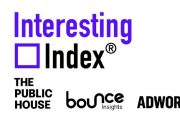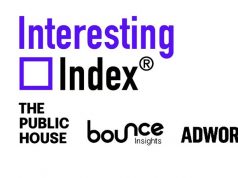 With more and more investment being made in digital advertising, it is becoming increasingly important for brands to ensure that their online ads are actually effective, writes Ian Campbell from media agency Zenith.
With more and more investment being made in digital advertising, it is becoming increasingly important for brands to ensure that their online ads are actually effective, writes Ian Campbell from media agency Zenith.
Spend on digital advertising in the Irish market is likely to break the €1 billion mark in 2024 for the first time. There is little doubt that digital investment will continue to grow in the coming years but advertising effectiveness across digital channels is still lagging behind so-called traditional media. This is a big watchout for advertisers but there are several solutions which I believe that we should be focusing on:
Premium media metrics should be the standard: Focussing on premium media metrics should be standard from a digital point of view which demonstrate how effective the channel is:
- High viewability is key for reporting on what percentage of your digital ads were actually viewed by consumers. Focussing on this rather than just reach and impressions improves the effectiveness of digital buying.
- Video completion rates is another key metric to focus on which can be improved by reducing reliance on skippable ads in favour of more premium buys in the form of broadcast VOD or non-skippable ads.
- It is also important to be conscious of delivering video ads in environments where mute rates are low so that we can ensure they have maximum impact and capture the users’ attention.
Attention: The average person in Ireland sees about 3,200 ads per week and this is growing all the time so getting consumers attention is becoming harder than ever. Many digital ads fail to meet the basic 2.5-second memory threshold essential for brand building. Ads should be tailored to each platform to maximize attention.
Attention isn’t a new concept but in recent years the technology used to measure it has progressed significantly. There are several options that can be taken towards integrating attention into your media buying including:
- Targeting attention by choosing how many attentive seconds to buy and adjust bidding based on different formats and placements to achieve campaign targets.
- Plan for reach and frequency but attention also with social media and standard display to increase the efficiency of the campaign.
- Measure attention on a publisher basis and optimise campaigns based on best performing formats from an attention perspective.
The importance of attention as a metric is still in its’ infancy even though it has really been around for six years. While technologies and test and learn methodologies are still evolving, embracing attention in your creative processes, strategies, optimisation and measurement will give you a competitive advantage in the long run over late adopters.
Introduce a performance framework (attribution): Attribution modelling has become ever more challenging in recent years with the switch from Universal Analytics to GA4 and the impending deprecation of third-party cookies from Chrome.
But let’s face it from a digital perspective, it is not the death of the cookie that is the real problem, it has been the growing fragmentation of media and loss of attention. The loss of the cookie presents an opportunity for us to plan more effectively rather than getting bogged down in the minutiae of short-term performance KPIs only.
What advertisers need to do is implement an advanced attribution performance framework that strike the balance between both short term performance metrics and longer term brand building. Examples of this include brand lift studies, digital media mix modelling and hold-out experiments which help to demonstrate the effectiveness of digital.
Integrate Creativity and Media Planning: Creative approaches significantly impact ad effectiveness. According to Ipsos, unconventional advertising creative results in 40% longer viewing times for skippable ads. Effective ads should capture attention quickly, be unique and memorable, and evoke emotion. In Ireland, that means making creative local. Irish people gravitate towards local content, whether it is on TV, in short form video, on social, on catch up. Even on streaming, we get a kick out of the big streamers featuring Irish content.
Standards of ad formats are improving online. Up to a point they are mirroring what we’ve had in the past – Non-skippable YouTube is technically a TV ad, Instagram is testing the same; but we have a long way to go. Ensuring you focus on these four solutions will result in better performance for now.
Ian Campbell is Digital Board Director at Zenith, part of Core



















